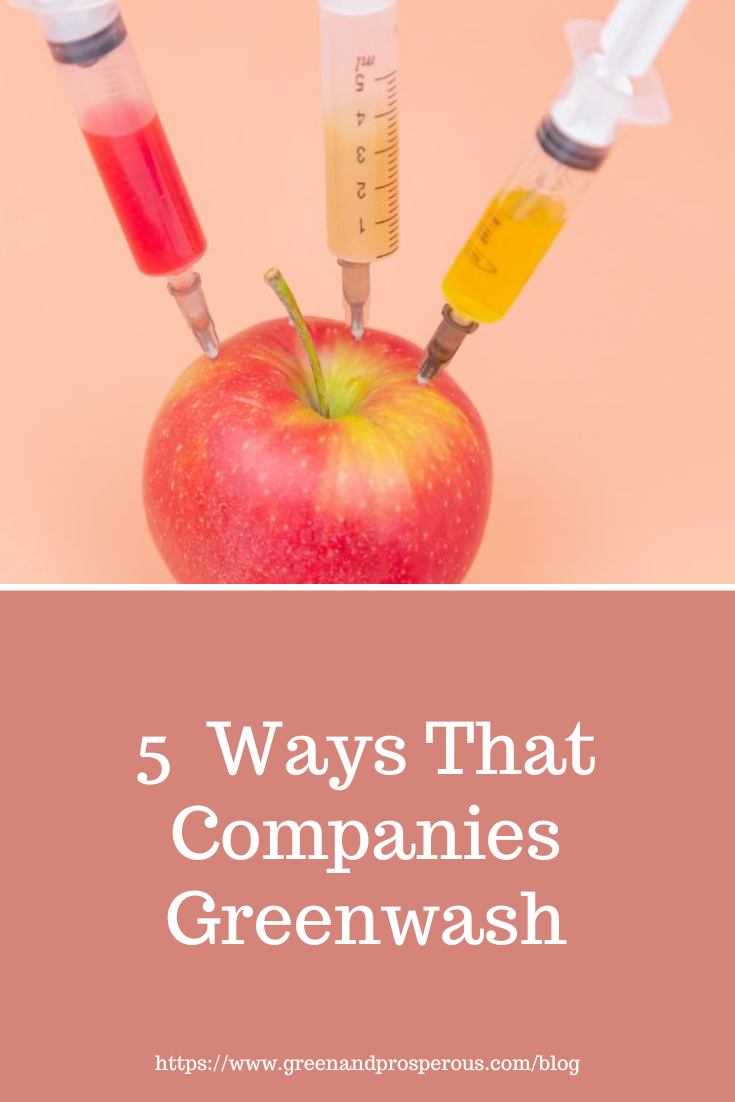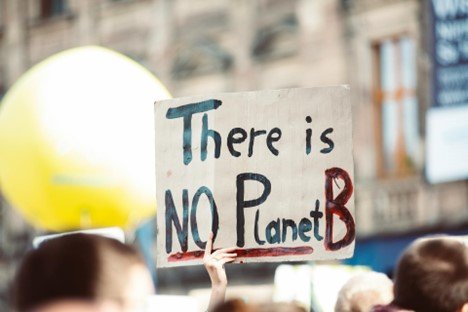5 Ways That Companies Greenwash
/What is Greenwashing?
As consumers are becoming more environmentally conscious, companies have begun to cater to the growing expectation that the production process and the materials used are clean and leave a low carbon footprint. However, implementing these changes is costly, and many companies have begun greenwashing by claiming their products are environmentally friendly without actually making the changes necessary to ensure that their products are truly green.
Greenwashing convinces customers that they are spending their money at a company that cares about the planet while few or no concrete steps towards sustainability are actually being made. If you are looking to support environmentally friendly companies, here are 5 things to consider to avoid supporting companies that engage in greenwashing.
Irrelevant Facts
Probably the easiest way for companies to convince customers that they are taking steps toward being eco-friendly is by using irrelevant facts to market their products. This is most commonly seen when government-mandated regulations ensure that a particular commodity or production process is safe for your health and the environment. Companies will then market their product, boasting their conformity with regulations as if the company implemented the changes out of its own free will.
For example, the use of CFCs (chloroflurocarons, a collection of greenhouse gases harmful to the ozone layer) has been banned by 197 countries. The gases used to be present in refrigerants and aerosols but are now obsolete in their manufacturing due to the bans. However, companies will sometimes label their products CFC-free as if it is a step towards sustainability on behalf of the company and not because of existing government regulations. You can avoid falling for this kind of deceptive marketing by looking up the claims on products’ labels to check if they are mandated, and thus something every company complies with, or a genuine effort towards environmental consciousness.
Vague and Unregulated terms
One of the most common methods companies use to greenwash is to include vague descriptions of their products in order to present them as eco-friendlier than they are. Often, unregulated terms such as “natural” and “non-toxic” are used because the user can interpret them to meet an assumed standard that is not guaranteed by a regulating body (i.e., the FDA). That is, a chemical considered toxic by the user can be present in a product labeled as non-toxic because it is an underregulated term and can thus be misused.
This tactic can also be applied to regulated terms such as “biodegradable” and “recyclable” if they are used in a vague enough way. A product can be labeled as recyclable but not mention what part is recyclable, such as the packaging, the product itself, or a small part. Companies are betting on the fact that consumers see a verifiable recyclable label and don’t question how much of the product is actually recyclable. Avoid this vagueness by looking for evidence to back claims of non-toxic ingredients, recyclable materials, etc., and clarify what is actually being referred to by these terms.
Hypocrisy
Possibly the sneakiest way companies lure in environmentally conscious customers is by making genuine and verifiable claims about efforts towards sustainability without disclosing the harmful practices that outweigh such efforts. For example, if a paper manufacturer were to market its materials as being sourced from a sustainably harvested forest but neglect to mention that the production process results in chemical waste improperly disposed of, this would be considered a form of greenwashing.
This tactic is incredibly sneaky because the changes that are made are usually the ones at the forefront of consumers’ minds, while there are several other changes needed to make the product eco-friendly that the consumer wouldn’t typically be aware of. When shopping, make sure to consider the production process in its entirety and read up on the companies’ practices.
Illegitimate Claims
The most egregious greenwashing tactic that companies employ is making illegitimate claims that their products or practices are eco-friendly. Outright lies are used on packaging and to advertise the product. This tactic is most apparent when there is no evidence to support the claims, or there is even evidence negating the claims on the same packaging. For example, a manufacturer claims that a product is made without ingredients known to be harmful to your health or the environment, but the ingredient list clearly shows such ingredients to be present in the product.
In cases like this, companies hope consumers blindly trust the claims on the front of the packaging without turning the product around to read the ingredient list. And companies bet on the fact that even if you do read the ingredient list, you won’t know which ingredients to look out for. You can avoid this by staying well informed on ingredients to avoid or by looking for a reputable third-party organization’s stamp of approval on the product and the claims being made.
Suspicious endorsements
When looking for a reputable third-party organization’s stamp of approval, be careful of companies attempting to win the trust of environmentally conscious customers by faking the stamp of approval. This is most commonly done by misleading consumers to believe the product is approved by a reputable organization that has rigorous environmental standards. However, many times the “third-party” organization will be one that the company has hired or works internally.
Some companies will actually put a fake logo similar to that of a reputable one on their packaging, hoping that shoppers will miss the difference and mistake it for a well-known organization or certification. Stay away from companies like this by making sure to double-check logos on the packaging and research those you aren’t familiar with.
Anti-Greenwashing Tip
Once you have found eco-friendly companies that are committed to making merchandise safe for your health and the environment, stick with them! Remember that you can vote with your money. Make sure you are putting your money towards companies that make a genuine effort. But make sure to keep informed about the ethics of the companies you buy from and note who their parent companies are – companies bought out by larger parent companies can sometimes change ingredients/values without you knowing. By doing this, you will not only be supporting companies that align with your values, but you will also be signaling to other companies that consumers are well informed of their greenwashing tactics. The change that makes it harder for companies to engage in greenwashing starts with you, the consumer.
by Megan Kibogo (Green and Prosperous)
Like this? Please pin!








































